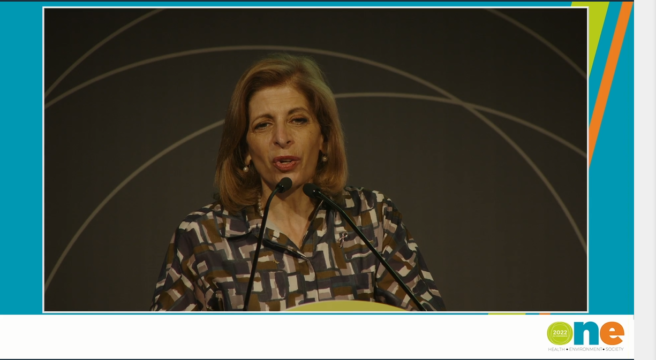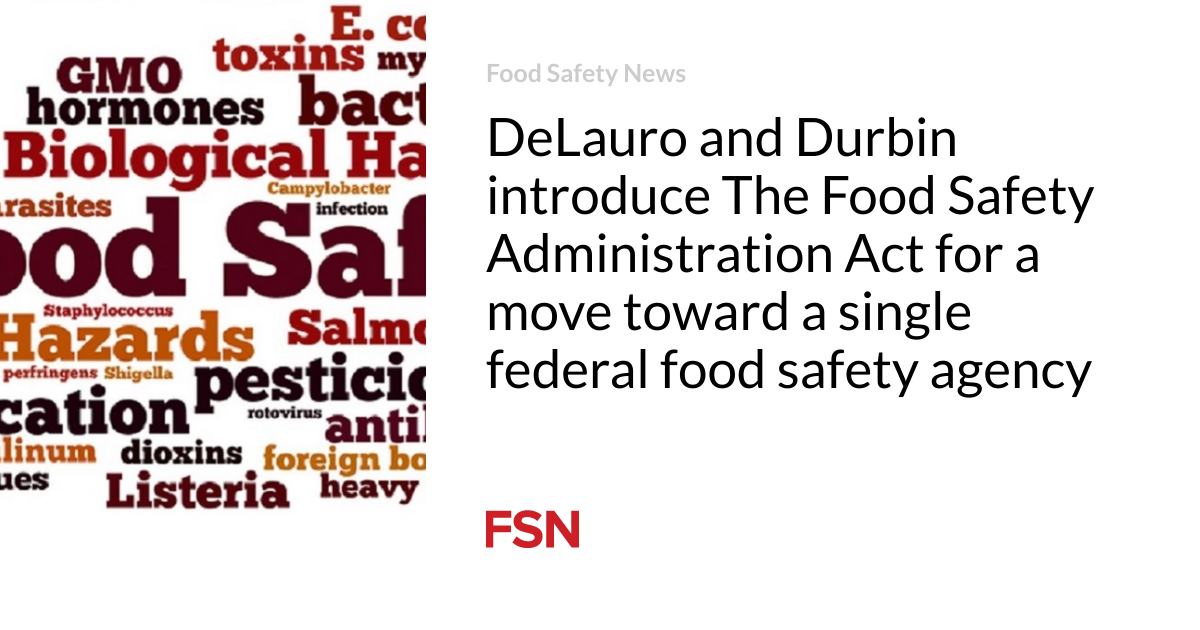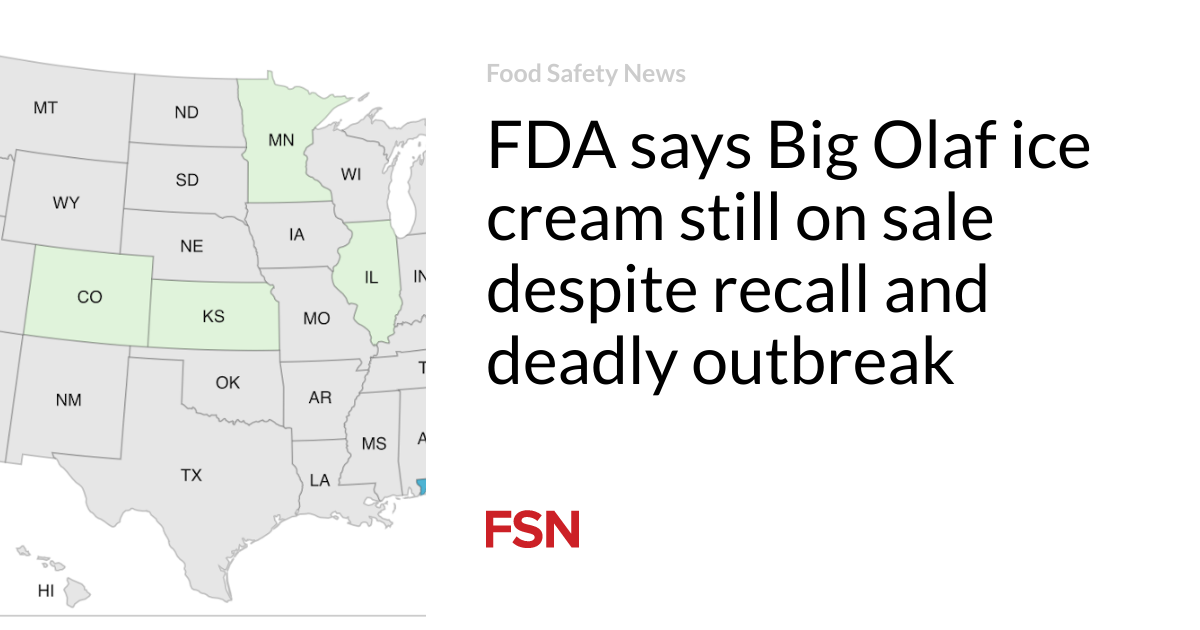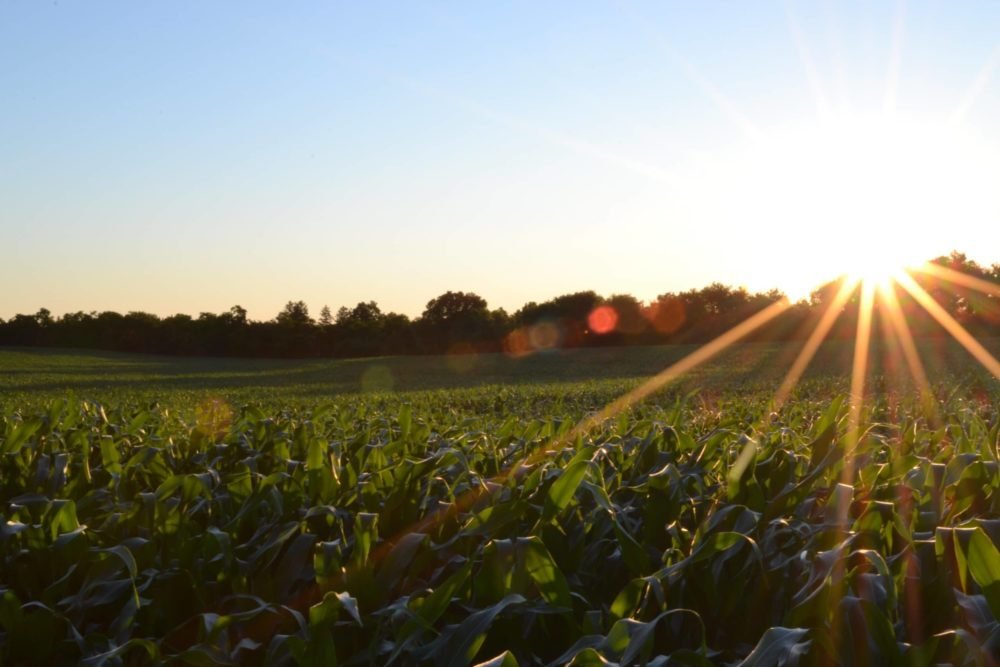Actions on food safety speak loudest when it comes to building trust, according to the deputy commissioner for food policy and response at the U.S. Food and Drug Administration.
“What we say about food safety matters, what we write about food safety matters but most important is what we do,” said Frank Yiannas at the ONE – Health, Environment, Society – Conference in Brussels and online.
The event, from June 21 to 24, is organized by the European Food Safety Authority (EFSA), European Centre for Disease Prevention and Control (ECDC), the European Chemicals Agency, European Environment Agency, European Medicines Agency and the European Commission’s Joint Research Centre (JRC).
Yiannas gave two examples of what the FDA is doing to increase consumer trust.
“The first one is food traceability, we are in the process of issuing a final rule later this year. We know from a food safety perspective, if there is a food scare, tracing that food back to source quickly can allow us to remove product from the market and shorten the epidemic curve, perform a secondary intervention and prevent additional illnesses. We believe better food traceability is about transparency and increasing this in the food system will breed trust,” he said.
“What’s the opposite of transparency in food? To me it’s what we have in today’s food system, too much anonymity, we really don’t know where those products come from, under what conditions were they produced, what certifications have they truly got and consumers also don’t know this.”
Data and consumer trust issues
The second action involves data, said Yiannas.
“I often say better food safety will begin and end with better quality data. We have the possibility of using tools to convert large volumes of big data that exists into actionable, preventive information. There is this big divide but new tools such as artificial intelligence, machine learning and the Internet of Things are causing this divide to close,” he said.
“In the data age, collaboration will increasingly involve public to public and private and public organizations sharing data and converting that into information and the entire food system getting smarter together. At FDA we are working on data trusts and have started a few projects to do just that.”
Yiannas said we are living through a “mega consumer trust bust”.
“Social scientists tell us consumers are less trusting of institutions, governments, companies, corporations and even of non-profits. On top of that people are increasingly polarized on issues of politics, climate change and how to deal with the pandemic. What about food? Do you think we, as a society, are increasingly polarized on food? I think the answer is yes,” he said.
“After three decades in the profession, I am sad to say I increasingly see food dividing us. I think food should unite us. We hear people talk about I want local food, others say they are ok with global food. Some people want organic and others are ok with conventional food, it tends to be more affordable. Some eat only natural and others are ok with processed foods. Today, we have an issue in many countries with too much food being as harmful as too little food.
“Never before in history has the responsibility to provide safe, available and sustainable food to so many rested on the shoulders of so few and never before have the consequences for not getting this right been more important.”
More than 4,200 participants registered online for the four day event, and around 1,000 signed up to attend in person. Of the latter, almost 90 percent come from Europe, with the rest from Africa, Asia and North America.
EFSA viewpoint on One Health and collaboration
Bernhard Url, EFSA’s executive director, said the speed of change creates widespread uncertainty and anxiety.
“The food system is in a state of crisis: hunger, obesity, food waste, resource depletion and biodiversity losses. With this conference, we would like to explore how food safety and more integrated health assessments can contribute to the transformation of food systems,” he said, when opening the conference.
“The One Health concept aims at balancing and improving the health of humans, animals and the environment. We think the principles of One Health make it ideal to support our work on addressing the complexity and urgency of the health challenges ahead. At EFSA, we think by applying these features, our food safety work will advance and be more fit for purpose and better inform policies which aim to transform the food system. One Health acts as a stepping stone, it connects food safety to sustainable food systems.”
Url said there is a need to see faster innovation in science methodologies to confront the challenges ahead.
“There is a trust issue – how can we anchor our scientific advice in a society that is ready to accept it. Even if the outcome is not liked because of value differences, people trust the process,” he said, during a later panel discussion.
“Everybody talks about collaboration and says yes we need to collaborate more, it’s a no-brainer but it’s not done enough, so what are the obstacles? I think here something is fundamentally wrong, so lets rectify it. Collaboration adds a layer complexity, you lose autonomy and give something for the bigger purpose which means it takes longer. There can be cultural or language differences, budgetary cycles and objectives of organizations are different. Maybe we have to put collaboration as an objective of organizations and not just something that could help us from the sidelines.”
EU Commission on regulation and EFSA’s role
Stella Kyriakides, EU Commissioner for Health and Food Safety, said trust in the food safety system underpins more sustainable food systems.

“The COVID-19 pandemic and Russia’s invasion of Ukraine have highlighted how we need a robust and resilient food system supplying sufficient, affordable food at all times,” she said.
“It has also brought home to us how our health, ecosystems, supply chains, consumption patterns and planetary boundaries are all interlinked. The increasing recurrence of droughts, floods, forest fires and new pests are a constant reminder that our food system is under threat and must become more sustainable and resilient.”
Kyriakides also mentioned the 20 year anniversary of the General Food Law Regulation and creation of EFSA.
“The regulation’s common definitions, aims and general principles have redefined and shaped EU food law and policy. Chief among them is the risk analysis principle, under which food law must be science-based,” she said.
“EFSA’s scientific excellence has served to give EU measures a solid scientific basis. It has maintained confidence in the EU food supply. It has raised EU food safety and standards and it has definitely helped raise international standards in the process. Thanks to EFSA and the General Food Law, the European Union can pride itself on having one of the most robust and efficient food safety systems in the world.”
(To sign up for a free subscription to Food Safety News, click here.)













